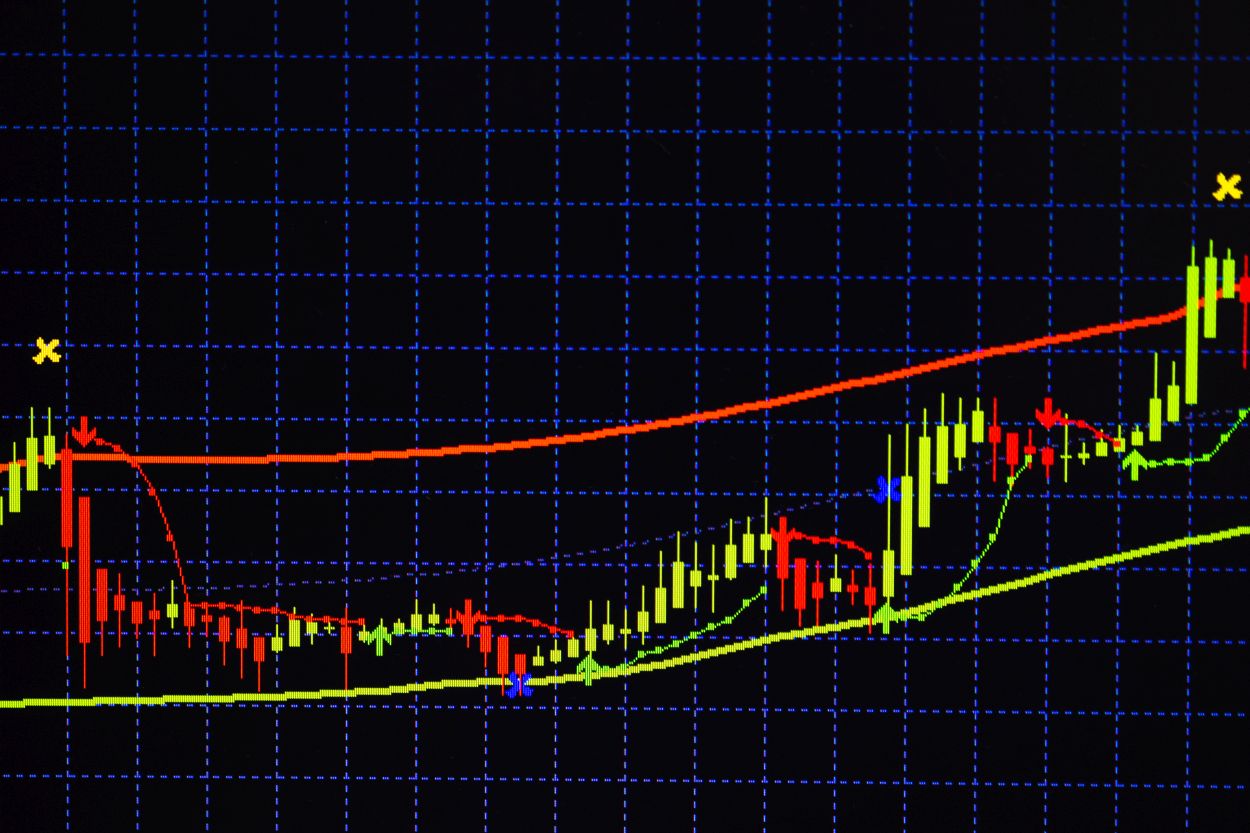Our ancient ancestors had very simplistic thought patterns. They’re not surprised—in an age where danger lurked on every side, individual survival required quick, automatic decisions.
Even if we don’t encounter a wild animal on our way to work today, we still have this mechanism. The consequences of this are only cognitive errors. They appear as thoughts that suit our ego – they falsify reality so that it seems to work in our favor. Good, right?
When it comes to investing, books and economic theories are only part of the knowledge to be absorbed. This is because cognitive errors also affect investment behavior and decision making.
See what investment psychology has to say about the most common pitfalls in investment decisions and how you can protect yourself from them.
Overconfidence
A study conducted among a group of financial analysts showed that up to 75% of them claim that their expertise exceeds that of their colleagues. But is it wrong for someone to value their abilities? Not at all! You just have to remember not to overestimate them (and novice investors are especially prone to this).
Avoiding this mistake is therefore very simple – you just have to be honest with yourself, analyze what you do well and what you don’t. Do not be afraid of the truth, openly appreciate your abilities, avoid „coddling”. If you know there is a market segment where your skills are not up to par, don’t try to convince yourself that you can handle it. Focus on what you are best at.
Confirmation Effect The
Confirmation Effect is a bug that has, among other things, overconfidence. Have you ever told someone „you only hear what you want to hear”? If so, you definitely know how a person works under the influence of reinforcement.
A person’s ego is very sensitive and will do anything to make himself look as good as possible – that’s why he often looks for proof of his righteousness. The reinforcing effect is precisely the tendency to seek and receive news and information that best fits our imagined scenario. This allows us to feel competent and confident in our performance.
It is very easy to get a strengthening effect in the stock market. Investors are often so convinced of the profitability of an investment that they ignore evidence of potential losses. In this situation, it is best to try to imagine an alternative scenario where this particular investment did not turn out as planned, and then try to understand why it did. In this way, our conclusions can help combat the leverage effect and enable capital investments to be more efficient.
Unrealistic Predictive Optimism
We engage in unrealistic optimism when we believe we can succeed better and fail less often than others. This error finds its application in unrealistically high expectations of the return of our investments.
To avoid this error, it is best to assume that the probability of success is as likely as the probability of failure. Even if you are sure that your prediction will bring success, be moderately optimistic – this will allow you to have a good attitude about the situation.
Research shows that unrealistic optimism occurs most often when we invest in instruments to which we are somehow connected (eg our own company on the stock market). So, be very careful when dealing with an emotional component.
The Illusion of Contror
We all have a strong need for control, which often makes us try to make sense of random situations. The stock market is unpredictable — it is affected by many stimuli beyond human control.
It is enough to mention the „black swans” that appear from time to time on the financial markets, that is, unpredictable events that have a huge impact on the economy. Even the greatest analysts could not foresee the attack on the towers of the World Trade Center or the nuclear disaster of Fukushima – it was simply impossible. The world is much more complicated than we think and often people just have to submit to it. However, investors often try to rationalize what happened – this is the illusion of control.
If you didn’t suspect something was going to happen in your life, don’t be afraid to admit it. By identifying and analyzing such events, you become more sensitive to similar surprises in the future.
You very often encounter this effect in everyday life. It works on a very simple principle – you receive a stimulus that should cause a corresponding reaction. If, when shopping, you see a high price on the label, it is crossed out and has a -50% sign, then the manufacturer „anchors” the end of the original value of the product. In the future, when you make a purchase decision, you refer to the original price of the product, which reinforces the impression that the discount is profitable. You have probably heard more than once that when the Black Friday campaign arrives, some manufacturers increase the prices of their products earlier, making their promotional value higher than usual. Why? Because they know how anchoring helps you.
As investment psychology shows,
this mistake in the financial environment can manifest itself as clinging to one piece of information (often not even important) to „root” your prediction in something. The anchoring error occurs most often in an environment of high uncertainty – and that is the stock market. Investors are often anchored on stock market index values that have occurred in the past (eg, „getting used to” a company’s stock price at certain levels) and view them as indicators of the future.
The Effect of Sunk Costs
Imagine a situation where you get a dish in a restaurant that is not very good, but you still finish it. Why do you do that? Because you will not regret the money spent! Investment psychology has a name for it: your brain has just experienced the sunk cost effect. It’s about staying in a situation that doesn’t serve us and trying to save it, often irrationally.
This effect affects us in many other situations: we stop reading a book that did not interest us, or we continue with an investment that brings us a loss. Why do we do this? We know how much effort and dedication the project has cost us, so it is natural that we do not want to back down and hope that the situation will improve.
Availability Heuristic
Before you start trading, you certainly look for a lot of resources and advice (perhaps on investment psychology), study a lot of material, and then try to invest small amounts. At the same time, you drive every day without thinking, even though driving a car is also risky.
Why is this happening? Because car accidents don’t get the same media attention as stock market crashes. At the same time, a person’s thinking process is most influenced by information that can be easily recalled from his memory resources. I’m sure you remember the financial crisis of 2008, but I’m sure you don’t know how many people died on the roads that year.
It makes you relax in the car, but you’re paralyzed by fear of stock market returns and you’re emotional about changes in the value of your investments Investment Psychology
Psychologia inwestowania – It’s More Important Than You Think! The freshness effect
The freshness effect results from the accessibility heuristic. It consists in prioritizing information that has just reached us over information that we received earlier. How can we easily control how this effect affects us? The day before your beach vacation, read how many people die from shark attacks every year, then try watching the movie Jaws. I guarantee that standing in the water, your brain will quickly forget that it learned before watching the movie that only 10 people a year are so unlucky.
In the case of behavioral finance, this effect can be manifested in the fact that investors are not related to a wide financial horizon. Therefore, one „fresh” bullish candle can tempt us to buy some shares, because we see it as the beginning of an uptrend, forgetting that in the broader perspective it can only turn out to be a correction. Another example is situations where we hear that a friend invested a thousand zlotys in Bitcoin a year ago and today is a millionaire. Such „news” benefits from the freshness effect and encourages us to invest, even if we have no idea about the instrument.
Home bias – we prefer what we know
This phenomenon is manifested in the tendency of investors to invest in domestic assets (mainly local companies) and in the reluctance to invest in foreign assets. Research shows that investors want to invest their money in something they feel good about, even if it is financially insignificant. No wonder – this phenomenon is an evolutionary condition, because only by turning in a known and proven environment can a person survive. However, in the stock market, this is a risk factor, because if our money is concentrated in one main market (eg the domestic market), there is a risk of losing all the funds if it collapses. Therefore, it is very important to diversify your investment portfolio and invest your resources in different assets.
Negativity Bias – or Greater Sensitivity to Loss
The next time you see a social media campaign telling you to quit smoking, listen to what the story says. Does it talk about the benefits of quitting smoking, like healthy skin or clean lungs? Or does it tell you how much one cigarette will shorten your life and bombard you with images of burned organs?
You must know that the language of defeat affects people much more than the language of victory.
Summary
In conclusion, investment psychology plays a very large role in our drilling successes and failures. Every experienced investor knows that controlling emotions while investing is almost impossible. However, knowing the above helps to identify the sources of wrong decisions made in the past, strengthen assumptions about current events and facilitate forecasting of investment results.
If you want to make sound investment decisions, you need to be aware of how your thoughts distort reality. Undoubtedly, being sensitive to cognitive errors and analyzing them will help you better assess your situation and thus reduce the risk of failure.




